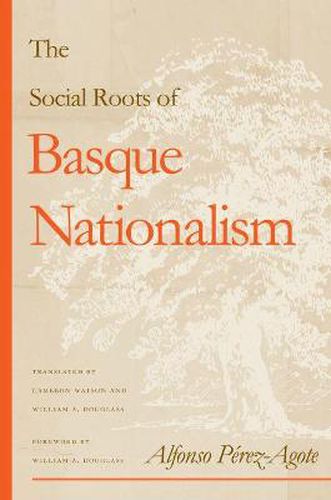Readings Newsletter
Become a Readings Member to make your shopping experience even easier.
Sign in or sign up for free!
You’re not far away from qualifying for FREE standard shipping within Australia
You’ve qualified for FREE standard shipping within Australia
The cart is loading…






That the Basque people have preserved their ethnic identity and sense of being a separate community, despite centuries of repression, diaspora, and economic and social upheaval, is one of the most remarkable achievements in the history of that phenomenon we call nationalism.
The Social Roots of Basque Nationalism
examines the processes that maintained and even intensified Basque nationalist political consciousness during the Franco years and the subsequent democratization of Spain. This work is based in part on a wide range of interviews and polls with informants in the Basque Country and abroad, eliciting such data as the role that family, education, and social and religious environment play in the evolution of political attitudes; the place of violence in the Basque world view and contemporary political culture; regional variations in Basque nationalism; and the factors that contributed to the resilience of Basque nationalism in adapting to new historical conditions. The result is a sophisticated discussion of the various ways in which Basque social reality is constituted and how this reality helps to create political culture.
$9.00 standard shipping within Australia
FREE standard shipping within Australia for orders over $100.00
Express & International shipping calculated at checkout
That the Basque people have preserved their ethnic identity and sense of being a separate community, despite centuries of repression, diaspora, and economic and social upheaval, is one of the most remarkable achievements in the history of that phenomenon we call nationalism.
The Social Roots of Basque Nationalism
examines the processes that maintained and even intensified Basque nationalist political consciousness during the Franco years and the subsequent democratization of Spain. This work is based in part on a wide range of interviews and polls with informants in the Basque Country and abroad, eliciting such data as the role that family, education, and social and religious environment play in the evolution of political attitudes; the place of violence in the Basque world view and contemporary political culture; regional variations in Basque nationalism; and the factors that contributed to the resilience of Basque nationalism in adapting to new historical conditions. The result is a sophisticated discussion of the various ways in which Basque social reality is constituted and how this reality helps to create political culture.